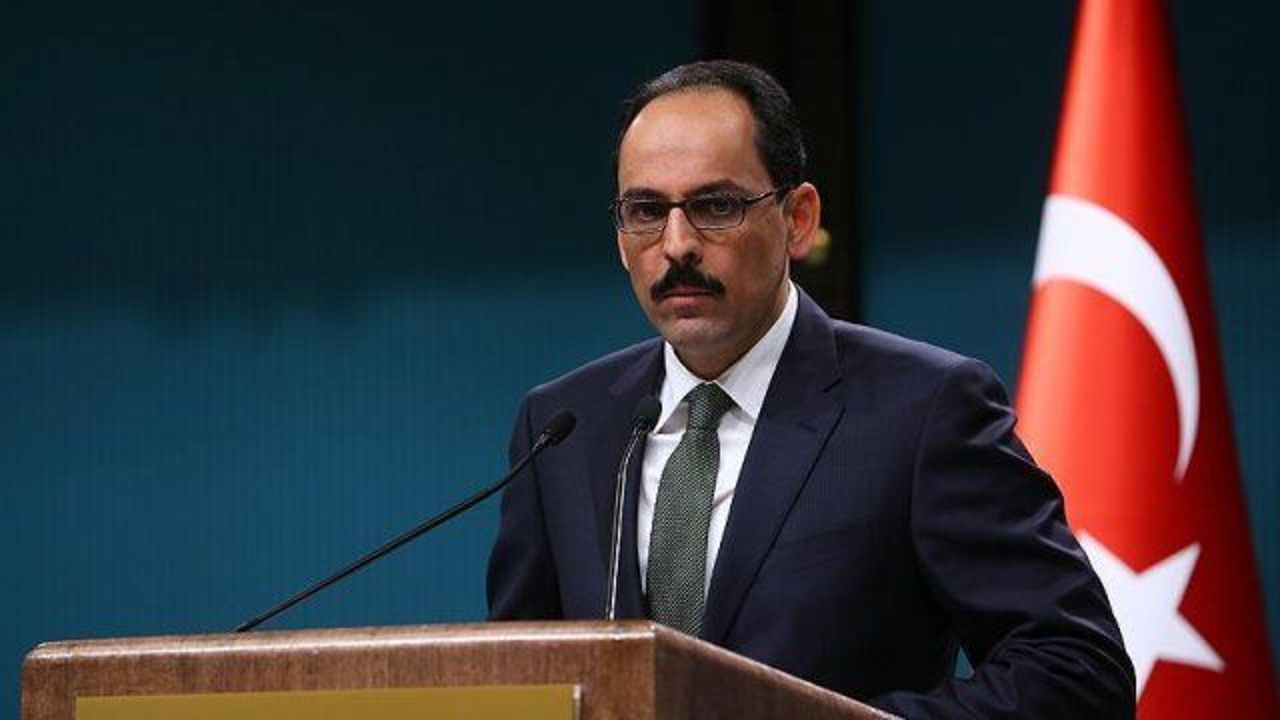Turkey fears for Syria deal amid Russia, regime attacks
Ankara has expressed grave concern over the future of the recent U.S.-Russia agreement aimed at halting the ongoing hostilities in Syria.

"We support this ceasefire in principle but the continuous bombardment by Russian jets and ground offensives by Assad forces cause serious concerns for us regarding the future of the truce," Turkish presidential spokesman Ibrahim Kalin told a news briefing at the presidential complex on Friday.
Earlier this week, Washington and Moscow announced a “cessation of hostilities” in Syria that is scheduled to take effect at midnight Friday local time. It is hoped the deal will allow aid to be delivered to desperate Syrians.
Daesh and al-Qaeda’s Syrian affiliate, the Nusra Front, are excluded from the agreement.
During remarks made on Thursday, Turkish Prime Minister Ahmet Davutoglu said that Ankara will neither hesitate to do what is necessary nor seek permission from anyone in case of a threat against its security from any party in Syria.
“All must know that this ceasefire is only valid for Syria and the warring sides in the country,” he told the media during a trip to Turkey’s Konya province. “If any of them poses a threat to Turkey's security, it becomes non-binding for us.”
Kalin also echoed Davutoglu's remarks, saying: "Turkey will use its rights originating from international law and apply the rules of engagement to protect its national security -- if necessary -- no matter from which part of Syria or from which terrorist group the threat comes."
Turkey’s military shelled PYD/YPG positions in northern Syria for a week beginning Feb. 13 in response to artillery fire from PYD forces based around Aleppo's Azaz town, located just six kilometers (four miles) from the Turkish border.
The YPG, the armed wing of the PYD, has been supported by U.S. airstrikes in its fight against Daesh and more recently by Russian warplanes as it seeks to gain further ground while opposition groups face regime offensives in northern Syria.
Ankara sees all three -- the PYD, YPG and the PKK -- as terrorist organizations.
The presidential spokesman noted that Turkey wants to see "which concrete steps will be taken on the ground" towards peace once the deal comes into force at midnight.
"We hope this ceasefire that begins at midnight will both halt the clashes, prevent civilian deaths and enable the flow of humanitarian aid which Syrian people need in different areas like Aleppo and Idlib," he said.
Citing reports of ongoing shelling north of Aleppo, Azaz, Tal Rifat, Idlib and Turkmen Mountain -- all lying along Syria's border with Turkey – Kalin stressed that the Assad regime had exploited previous peace talks in Vienna and Geneva to stall for more time.
"We hope it [the deal] will yield a different result this time," he said.
"We will negotiate all issues with our allies and friendly countries but Turkey's national security is never a matter for negotiation," Kalin also said.
The dynamics of the links between Turkey, the U.S. and the PYD has recently caused a strain in the ties between Ankara and Washington.
U.S. officials have been adamant in recent weeks in refusing to recognize the PYD -- or its armed wing YPG -- as a terrorist organization, instead calling the YPG a "reliable partner" in the fight against Daesh, supporting the group with weapons and training.
"The depth and dimensions of the relationship between the PKK and the PYD-YPG, and the one between Assad regime and these groups, are already recorded in the own intelligence reports of these countries.
“But their ignorance towards this relation under the pretext of anti-Daesh fight so as to utilize certain opportunities on the ground is null and void for us," said Kalin.
The spokesman stressed that Turkey's struggle is aimed at the "process heading towards the establishment of a state structure under the control of the PKK," in Syria's north.
"Turkey will never allow such a state structure, autonomous structure or cantons right south of its borders," he added.
Kalin further ruled out any preparations by the Turkish army together with the Saudi Arabia for a ground operation into Syria, but said Ankara rather focuses on "acting in concert with the international coalition".
"What we talk about is that the air shelling in the anti-Daesh fight is not enough alone, but that support is required for the opposition forces on the ground, like the Free Syrian Army, in order to gain ground supremacy," he said.
According to UN figures released several months ago, more than 250,000 have been killed since the Syrian war began in 2011.
This week, Turkish President Recep Tayyip Erdogan said that around 400,000 people had died and 12 million people been displaced since the war started.
Anadolu Agency







